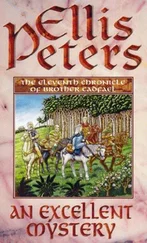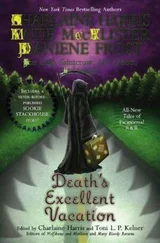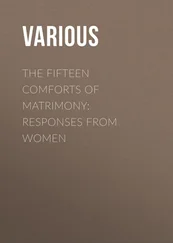Various - Excellent Women
Здесь есть возможность читать онлайн «Various - Excellent Women» — ознакомительный отрывок электронной книги совершенно бесплатно, а после прочтения отрывка купить полную версию. В некоторых случаях можно слушать аудио, скачать через торрент в формате fb2 и присутствует краткое содержание. Жанр: Биографии и Мемуары, foreign_antique, на английском языке. Описание произведения, (предисловие) а так же отзывы посетителей доступны на портале библиотеки ЛибКат.
- Название:Excellent Women
- Автор:
- Жанр:
- Год:неизвестен
- ISBN:нет данных
- Рейтинг книги:5 / 5. Голосов: 1
-
Избранное:Добавить в избранное
- Отзывы:
-
Ваша оценка:
- 100
- 1
- 2
- 3
- 4
- 5
Excellent Women: краткое содержание, описание и аннотация
Предлагаем к чтению аннотацию, описание, краткое содержание или предисловие (зависит от того, что написал сам автор книги «Excellent Women»). Если вы не нашли необходимую информацию о книге — напишите в комментариях, мы постараемся отыскать её.
Excellent Women — читать онлайн ознакомительный отрывок
Ниже представлен текст книги, разбитый по страницам. Система сохранения места последней прочитанной страницы, позволяет с удобством читать онлайн бесплатно книгу «Excellent Women», без необходимости каждый раз заново искать на чём Вы остановились. Поставьте закладку, и сможете в любой момент перейти на страницу, на которой закончили чтение.
Интервал:
Закладка:
It was in this year the King of Prussia made a state visit to England, and the marked attention he showed to Mrs. Fry was much noticed. He went to meet her at Newgate, and he also insisted on going to Upton to dinner, where Mrs. Fry presented to the King her husband, eight daughters and daughters-in-law, seven sons, and twenty-five grandchildren, with other relatives, Gurneys, Buxtons, and Pellys—an English family scene much enjoyed by the Prussian guest. Other visits are described in her Journals, to the Queen Dowager, the Duchess of Kent, the Duchess of Gloucester, and others of the Royal Family; having interesting conversations about "our dear young Queen, Prince Albert, and their little ones; about our foreign journey, the King of the Belgians, and other matters." She often used to say she preferred visiting prisons to visiting palaces, and going to the poor rather than the rich, yet she felt it her duty to "drop a word in season" in high places, and at the same time to be "kept humble, watchful, and faithful to her Lord."
After the fatigues of the Continental and London season, she was glad in the summer to occupy the house of her brother-in-law Mr. Hoare at Cromer, and when there she saw much of the residents at Northrepps Hall, The Cottage, and other places famed far and wide for their philanthropic associations.
She got home to Upton Lane, and spent the winter there. The most noticeable event mentioned is her meeting at dinner Lord Ashley, at her son's house. "He is a very interesting man; devoted to promoting the good of mankind, and suppressing evil—quite a Wilberforce, I think." Such was her opinion of the good Earl of Shaftesbury in his early days.
In the spring of 1843, feeling her health to be somewhat restored, she surprised her friends by announcing her wish to visit Paris again, to complete works of usefulness formerly initiated there. More than once she saw the widowed Duchess of Orleans at the Tuilleries, the only other person present being her stepmother the Grand Duchess of Mecklenburg, "an eminently devoted pious woman," by whom the Duchess of Orleans had been brought up from childhood. They spoke much about the children of the House of Orleans, and "the importance of their education being early founded in Christian faith;" a desire which may be re-echoed in another generation. Another important series of interviews was with M. Guizot, then the chief statesman of France. Altogether the last visit to Paris was a pleasant and useful expedition.
XIV.
LAST YEARS
The end was now drawing nigh—the end of her busy, useful life. In June, 1843, Elizabeth Fry attended the Quarterly Meeting at Hertford, the last time she left home expressly on religious service. She felt it her duty, she said, "to encourage the weary, and to stir up to greater diligence the servants of the Lord, who uses weak and foolish instruments for His work," yet who is "made unto His people, wisdom, righteousness, sanctification, and redemption."
Symptoms of increasing feebleness led to her removal that autumn from her home at Upton Lane, to various places, Sandgate, Tunbridge Wells, and Bath, in hope of recovering her strength. But she knew that her time for active service was over. She frequently said to those about her, "I feel the foundation underneath me sure." Her concern was not about herself, but about those near and dear to her.
One of the last entries in her Journal is this: "I do earnestly entreat Thee, that to the very last I may never deny Thee, or in any way have my life or conversation inconsistent with my love to Thee and most earnest desire to live to Thy glory; for I have loved Thee, O Lord, and desired to serve Thee without reserve. Be entreated, that through Thy faithfulness, and the power of Thy own Spirit, I may serve Thee unto the end. Amen."
The year 1844 was one of much trial and affliction. Her husband's only sister died of consumption on July 2nd; a grandson of much promise was taken off at the age of twelve by the same disease towards the end of July; in August and September her second son and two of his young daughters were rapidly carried off by malignant scarlet fever. In the spring of the following year the death of her brother-in-law, Sir Thomas Fowell Buxton, excited her tenderest feelings. In fact, there was a succession of bereavements, which caused her to say in her Journal, "Sorrow upon Sorrow!" and after writing the long list of deaths, she closes the entry with these words "O gracious Lord! bless and sanctify to us all this afflicting trial, and cause it to work for our everlasting good; and be very near to the widow and the fatherless; and may we all be drawn nearer to Thee, and Thy kingdom of rest and peace, where there will be no more sin, sickness, death, and sorrow."
As to her own health, she rallied a little after returning home from Bath, but it was thought well to move from place to place for change of air, and for the pleasure of communion with loved friends. The beginning of 1845 saw her again in Norfolk, her husband and her daughter taking her to Earlham, where she enjoyed, for several weeks, the companionship of her brother, Joseph John Gurney, his wife, and other relatives. She went frequently to Meeting at Norwich, drawn in her wheeled chair, and thence ministering with wonderful life and power to those present.
The Annual Meeting of the British Ladies Society, an excellent organisation for visiting and caring for female convicts, although usually held at Westminster, was this year held in the Friends' meeting-house at Plaistow. After the meeting, which she had addressed several times in a sitting posture, she invited those present to come to her home, and it was felt that her affectionate words at parting were probably the last they would hear from her in this world.
As the year passed, it was thought that the air of the south coast might be useful, and the house at Ramsgate, Arklow House, which proved her last abode, was prepared for her. Her bed-chamber adjoined the drawing-room, with pleasant views of the sea, in which she delighted. While driving in the country, or being wheeled to the pier in a Bath-chair, she still strove to be useful, distributing Bibles and tracts, accompanied with a few words of kindly exhortation. Thus she was employed till the close of her days in work for the Master. She lingered, with gradual decay; and passed away, after a few days' illness which confined her to bed, on the morning of the 13th of October, 1845, in her 66th year. The last words she was heard to articulate, were "O dear Lord, help and keep Thy servant."
There was much sorrow when she had ended her useful life; and when she was taken to Barking for interment, a great number of people assembled, and a solemn meeting was held. But far beyond any local gathering, her example will continue to speak, through all the ages, and in many a land. There are many workers in our time in every branch of Christian usefulness, but the name and the work of Elizabeth Fry will be for ever remembered.
JAMES MACAULAY, M.D.
SELINA, COUNTESS OF HUNTINGDON
Lady Selina Shirley, afterwards Countess of Huntingdon, was born August 24, 1707. She died June 17, 1791. Hence her long and useful life extended over almost the whole of the eighteenth century. She witnessed the rise of the great evangelical revival, which, beginning with the Holy Club at Oxford, gradually spread over the United Kingdom and the English colonies in America. For half a century she was a central figure in that great religious movement which affected so deeply all classes of the community, consecrating her position, her means, her influence to the glory and the extension of His kingdom.
I.
EARLY YEARS
Lady Selina Shirley was the second of the three daughters of Washington Shirley, who in 1717 succeeded to the Earldom of Ferrars, being the second to bear that title. She was born at Stanton Harold, a country seat near Ashby de la Zouch, in Leicestershire. At a very early age she gave evidence of intelligence above the average, of a retentive memory, and of a clear and strong understanding. She manifested when but on the threshold of womanhood that sound common sense and keen insight into character and the true bearing of affairs which distinguished her so pre-eminently in mature and late life. She was serious by temperament, and when at the age of nine years she happened to meet the funeral cortège of a child the same age as herself, she was attracted to the burial, and used afterwards to trace her first abiding sense of the eternal world to the profound impressions produced upon her mind by that service. In after life she frequently visited that grave. She was earnest in her study of the Bible, much given to meditation, and at times almost oppressed by her convictions of the certainty and duration of a future state. By her station and education she was compelled to go out into society, and to take her place in circles in which religion was as far as possible ignored. But her prayer was that she might not marry into a frivolous, pleasure-seeking family.
Читать дальшеИнтервал:
Закладка:
Похожие книги на «Excellent Women»
Представляем Вашему вниманию похожие книги на «Excellent Women» списком для выбора. Мы отобрали схожую по названию и смыслу литературу в надежде предоставить читателям больше вариантов отыскать новые, интересные, ещё непрочитанные произведения.
Обсуждение, отзывы о книге «Excellent Women» и просто собственные мнения читателей. Оставьте ваши комментарии, напишите, что Вы думаете о произведении, его смысле или главных героях. Укажите что конкретно понравилось, а что нет, и почему Вы так считаете.












